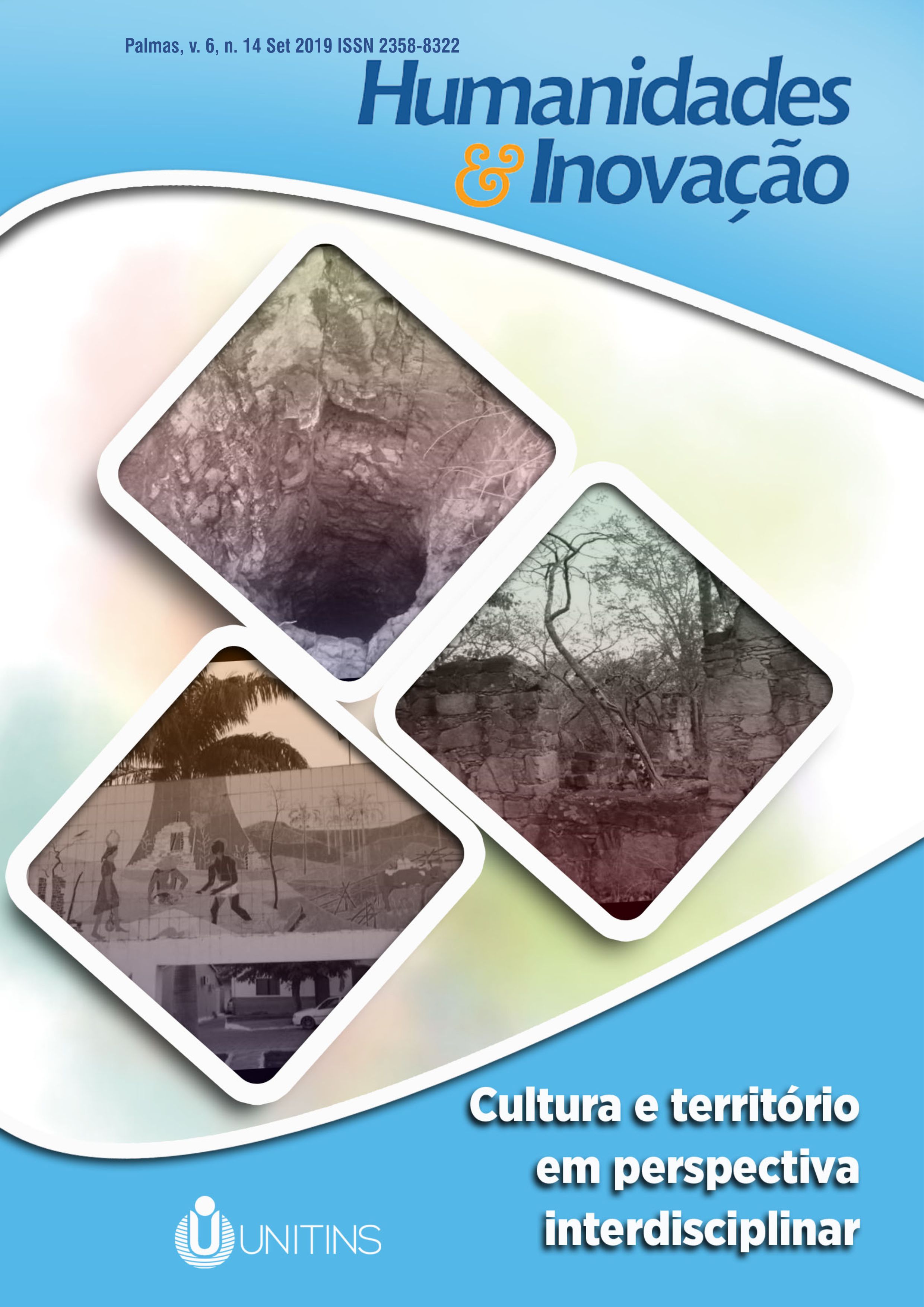“HOMELAND IS WHERE MY FEET ARE”: THE PLURAL TERRITORIES NARRATED IN A RAINHA GINGA, BY JOSÉ EDUARDO AGUALUSA
Resumo
Hereby it is settled an interpretation of the narrator clerk from A Rainha Ginga: e de como os africanos inventaram o mundo (2014), by José Eduardo Agualusa, emphasizing the sceneries travelled by the protagonist. When narrator finds himself freed from the medieval Catholic principles, he finds his gist, synthesizing two worlds: Old and New World, full of adventures and surprises concerning Brazil and Angola. Here is the view of a medieval man who, despite his dogmatic education, finds in the colonies his genuine territory. History, geography, and ethnicity are the main searchlights to read this novel, so fiction and fact play an important role when combined. To keep track of the historical events, Agualusa read several diaries of the time, including Ginga’s official clerk annotations, Priest Cavazzi, and his Istorica Descrizione de’ter Regi Congo, Matamba ed Angola, written in the 17th Century. Arendt (1961), Mudimbe (1988), Ribeiro (2006), Burke (2009), Jaja (2012), among others, were the main theoretical sources applied in this work.
Referências
AGUALUSA, José Eduardo. A Rainha Ginga: e de como os africanos inventaram o mundo. Rio de Janeiro: Foz, 2015.
ARENDT, Hannah. Between Past and Future. New York: Viking Press, 1961.
BENDING, Stephen. Literature and Landscape in the Eighteenth Century. Oxford: Oxford University Press, 2015. Printed from Oxford Handbooks Online. Retrieved from: <http://www.oxfordhandbooks.com/view/10.1093/oxfordhb/9780199935338.001.0001/oxfordhb-9780199935338-e-133?print=pdf>. Accessed on Oct. 10, 2018.
BURKE, Kenneth. The Philosophy of Literary Form. Berkeley: University of California Press, 1973.
BURKE, Peter. Popular Culture in Early Modern Europe. Surrey: Ashgate Publishing, Ltd., 2009.
CAVAZZI DE MONTECUCCOLO, João António. Descrição histórica dos três reinos do Congo, Matamba e Angola. Translation, notes by Graciano M. de Leguzzano. Introduction by F. Leite de Faria. Lisboa: Junta de Investigações de Ultramar, 1965. 2 vols.
GIROTO, Ismael. O universo mágico-religioso negro-africano e afro-brasileiro: bantu e nàgó. [Tese de Doutorado em Antropologia]. São Paulo: USP, 1999.
JAJA, Jones M. African Songs as Historical Data Dialogue and Universalism. Warsand: Poland, 1995.
____________. Myths in African concept of reality. International Journal of Educational Administration and Policy Studies, vol 6 (2), p. 9-14, February 2014. Retrieved from: <https://files.eric.ed.gov/fulltext/EJ1075851.pdf>. Accessed on Sep. 21, 2018.
JENSEN, R. Heart of whiteness. San Francisco: City Light Books, 2005.
KERMODE, Frank. The Sense of an Ending: Studies in the Theory of Fiction with a New Epilogue. New York: Oxford University Press, 2000.
LEPHAKGA, Tshepo. The history of the conquering of the being of Africans through land dispossession, epistemicide and proselytisation. Studia Hist. Ecc., Pretoria, v. 41, n. 2, p. 145-163, 2015. Available from: <http://www.scielo.org.za/scielo.php?script=sci _arttext&pid=S1017-04992015000200010&Ing=en&nrm=iso>. Accessed on May 23 2018.
LINDBLAT, Thomas J. History and Fiction: An Uneasy Marriage? Humaniora, v. 30, n. 2, p. 147-157, June 2018. Available from: <https://www.researchgate.net/publication/326094886_History_and_Fiction_An_Uneasy_Marriage>. Accessed on May 23 2018.
MBITI, J. S. African religions and philosophy. 2nd ed. Oxford: Heinemann Educational Publishers, 1990.
MUDIMBE, V.Y. The invention of Africa: Gnosis, philosophy, and the order of knowledge. Indianapolis: Indiana University Press, 1988.
RIBEIRO, Darcy. O povo brasileiro. São Paulo: Cia. das Letras, 2006.
ROSPIDE, Maylis; SORLIN, Sandrine. The Ethics and Poetics of Alterity: New Perspectives on Genre Literature. Cambridge: Cambridge Scholars Publishing, 2015.
STABLES, Andrew. The Landscape and the “Death of the Author”. Canadian Journal of Environmental Education, 2, Spring 1997, p. 104-113. Available from: <https://cjee.lakeheadu.ca/article/view/356>. Accessed on May 12 2018.
THORPE, S. A. Primal religions worldwide: An introductory descriptive review. Pretoria: University of South Africa, 1992.
VAN DIJK, Teun A. Racism and the press. London: Routledge, 1991.
A submissão de originais para este periódico implica na transferência, pelos autores, dos direitos de publicação impressa e digital. Os direitos autorais para os artigos publicados são do autor, com direitos do periódico sobre a primeira publicação. Os autores somente poderão utilizar os mesmos resultados em outras publicações indicando claramente este periódico como o meio da publicação original. Em virtude de sermos um periódico de acesso aberto, permite-se o uso gratuito dos artigos em aplicações educacionais, científicas, não comerciais, desde que citada a fonte (por favor, veja a Licença Creative Commons no rodapé desta página).











